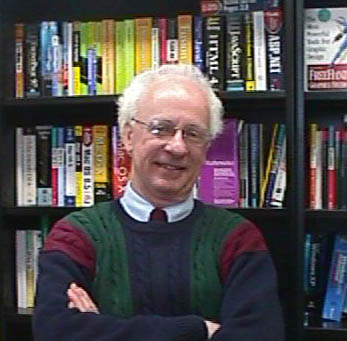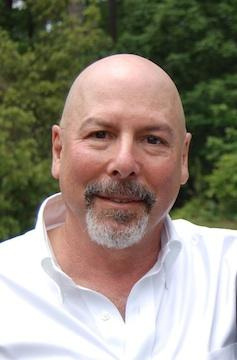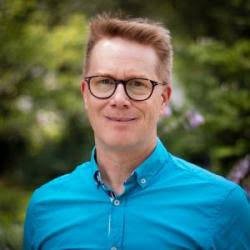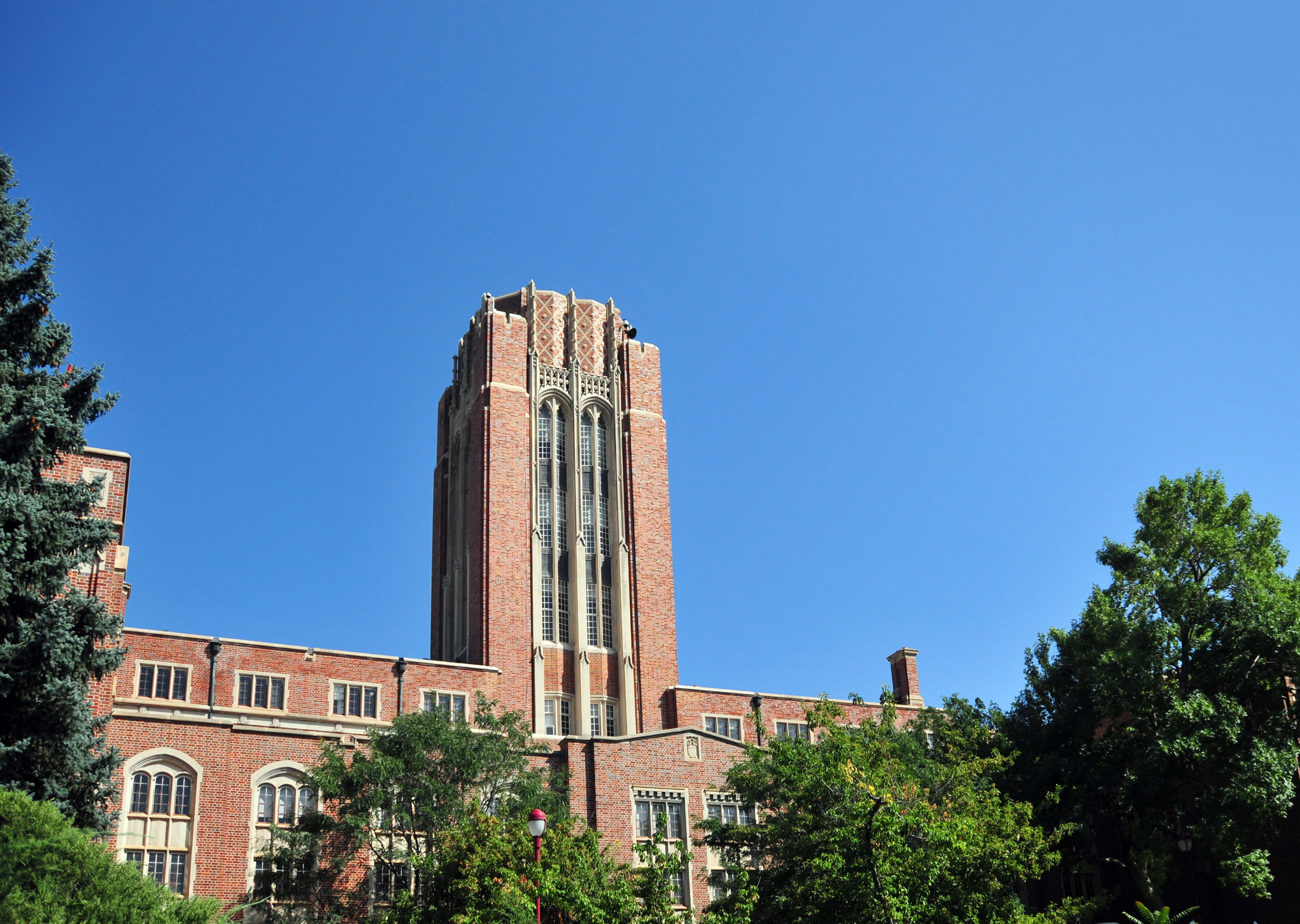
46th Annual Conference of
the Society for Descriptive Psychology
Hybrid Conference
Sept. 19th to Sept. 22nd 2024
In-person in Boulder CO at Hampton Inn & Suites, Boulder-North, 6333 Lookout Road, Boulder, CO 80301 and via Zoom

For mental health and addiction professionals, organizational psychologists and leaders, policy makers, educators, and others who require a respectful understanding of persons. Topics to be presented at the 46th Annual Meeting are diverse and address a variety of clinical, conceptual, and research issues using concepts from Descriptive Psychology (DP).
Sept 19th-Sept. 22nd 2024

Cost for Attendance, including CE
$150 for non-members; $125 for members; $65 for students* (No CE); $65 non-members, one day only
* Student must be enrolled at least 1/2 time in a degree program to qualify for this rate.
In-person attendees are invited to the banquet dinner on Saturday evening, September 21st (cost not included in the conference fee). If you choose to join us at the Saturday evening banquet, the cost will be $55 and you must register for the conference and banquet by 9/13/2024, because the restaurant needs a final count of the banquet attendees by then. If you register for the conference after 9/13, you will not be able to attend the banquet.
*** The registration site will be closed on 9/18 at 11:59 PM ***
Accommodations
**If you know you will be coming to the conference this year in Boulder, please book your stay. We have secured a block of 15 rooms at a rate of $179 per night at the Hampton Inn and Suites, 6333 Lookout Rd, Boulder, CO 80301.
Here is the hotel link: https://group.hamptoninn.com/yi478e
This link is set up to default to 3 nights stay: Thursday September 19, Friday the 20th and Saturday the 21st, checking out on the 22nd. In the past some attendees have come a day or two early and/or have stayed a day or two later. The website gives you the option to alter the date range. Look for the link Edit Stay to alter the dates of your stay. Again the conference dates are Thursday September 19-Sunday September 22. The hotel phone number is : +1 303-530-3300. Last day to book a room at this rate is 8/20/2024.

ABOUT THE SOCIETY
The Society for Descriptive Psychology, a non-profit organization registered in Colorado, is a community exploring the Person Concept—an interdependent conceptual framework of Person, Behavior, Language, and World—to create common ground for the Human Sciences. The Annual Meeting of the Society is an opportunity to share advances in, and applications of Descriptive Psychology.
The primary goals of this conference are to continue the exploration of Descriptive Psychology as a conceptual approach to a broad range of topics within the behavioral sciences, social sciences, and humanities, to continue building the Descriptive Psychology Community, and to promote further discussion about new approaches to disseminating Descriptive Psychology concepts and applications. The conference will include introductory, intermediate, and advanced presentations.
Should you wish to express appreciation for the value of the information in the presentations or for the CE, please consider contributing directly to our student scholarship fund (offsetting expenses for students and emerging professionals to present at conferences), or by contributing to any non-profit organization serving mental health or community service initiatives.

Conference Schedule
THURS, SEPT 19th EVENING SESSION
PLEASE NOTE: ALL PROGRAM TIMES ARE MOUNTAIN TIME ZONE!!!
6:15 PM – 6:30 PM
Conference Convenes
Welcoming Announcements
Introduction of the President by Charles Kantor,PhD, President-Elect
6:30 PM – 8:00 PM
Presidential Address: Reconstructing Worlds Through Expressive and Mindful Art: A Descriptive Psychology Perspective (1.5 CE)
Charles Cote’, LCSW, Society President
In the Society for Descriptive Psychology 2024 Conference Presidential Address, we will explore how expressive and mindful art, particularly poetry, helps reconstruct personal worlds after loss. Inspired by Wallace Stevens and Gregory Orr's "Poetry as Survival," we examine how poetry interweaves language, emotion, and meaning to navigate grief and trauma. Through Descriptive Psychology, the talk will highlight how artistic practices foster resilience and healing. The presenter will combine theoretical insights with empirical research on the psychological benefits of artistic expression, emphasizing poetry as a space for reflection and catharsis, aiming to inspire clinical and scholarly application.
FRI, SEPT 20th
PLEASE NOTE: ALL TIMES LISTED ARE IN MOUNTAIN TIME ZONE!!!
9:00 AM – 10:00 AM
Beyond Outcome Studies: Good Psychotherapy Rests on Many Secure Epistemic Foundations
(1.0 CE)
Raymond Bergner, Ph.D., Professor, Illinois State University
In this talk, I will argue the thesis that rigorous, strongly reasoned psychotherapeutic practice rests, not only (and not always) on outcome research, but on many further equally, and in some cases more, secure epistemic foundations. In part 1 of the talk, based on currently well-established epistemological thinking, a ranking of the degree of certainty of propositions yielded by different knowledge sources, and thus the confidence with which we may believe and act upon them, is presented. Following the description of each knowledge source, an analysis of the degree to which it enters into the practice of psychotherapy is developed. In part 2, several further knowledge sources essential to psychotherapy that are difficult to rank are presented, as well as the confidence that can reasonably be placed in knowledge derived from these sources.
10:00 AM – 10:10 AM BREAK
10:10 AM – 11:10 AM
Using Status Dynamics to Open the “Black Box” of Therapeutic Residential Care (1.0 CE)
Martin Smedlund, MSc., Icelandic Government Agency for Children and Families
Studies show that adolescents with serious substance abuse and severe psychosocial problems can benefit from therapeutic residential care (TRC) but the question as to why it is beneficial has been the subject of much debate. This is the “black box problem” of TRC and it is generally believed to stem from a lack of empirical data. Contrary to this, I argue that what is lacking is a proper understanding of the ways in which TRC can function as a community that increases the behavior potential of its members. What is needed is an explicit understanding of the status dynamics of communities.
11:10 AM – 11:20 AM BREAK
11:20 AM – 12:20 AM
Truth and the Maxims (1.0 CE)
Mary K. Roberts, Ph.D., Clinical Psychologist and Independent Scholar
A healthy balance between what is logical (conceptual, grammatical) and what is empirical is essential for behavioral science. The devaluation of the logical and overvaluation of the empirical endemic to our field today limits the quality and depth of understanding of persons we can achieve. I will review the struggle of mathematicians and scientists in the 19th and 20th centuries (e.g., Poincaré, Hilbert, Wittgenstein, and Carnap) to clarify the distinction, and show how it applies now to our understanding of truth, universality, tautologies, and the maxims.
SAT, SEPT 21st
PLEASE NOTE: ALL TIMES LISTED ARE IN MOUNTAIN TIME ZONE!!!
9:00 AM – 10:00 AM
Making a metaphor: Using Descriptive Psychology to facilitate collaborative treatment formulation in clinical treatment planning and practice (1.0 CE)
Erol Zeybekoglu, Psy.D , Clinical Psychologist
‘Clinical formulation’, defined by Cambridge University press as “a concise summary of the origins and nature of a person's problems, together with opinion on what may go wrong in the future and what steps should be taken to improve matters,” is an important part of the treatment planning process in clinical care settings. This presentation will explore new ways to utilize Descriptive Psychology in providing persons served with opportunities for collaborative feedback in the development of a mutually agreed upon “core practice” metaphor. Attendees will also learn methods of incorporating descriptive practices in status dynamic psychotherapy in the development and revision of clinical formulation and treatment planning.
10:00 AM – 10:10 AM BREAK
10:10 AM – 11:10 AM
Pandemic Response Healthcare Facilities Planning – A World-Building Exercise (1.0 CE)
Craig Webster, PE, and Rebecca Sommer, AIA
This presentation will address a real world problem regarding persons, their behavior, and how seemingly disparate communities can work together to create unique solutions and set new standards. In December of 2019, a team was selected to design and construct a new healthcare facility. The COVID 19 pandemic changed everything. The client, design, and construction team had to figure out how to plan the design and construction of the building using new tools and means of communication and in doing so develop a new way to analyze and evaluate the design and related construction implications to respond to this and future pandemics.
11:10 AM – 11:20 AM BREAK
11:20 AM – 12:20 PM
Sitting Shiva: Endings, Revisiting, and Behavior Potential (1.0 CE)
Wynn Schwartz, PhD Harvard University
A person’s world reflects the relationships that span their life. The important events that mark relational changes and endings affect the memory and significance of that history. In this manner, relationships never really end; instead, endings change the relationship’s significance and range of enactment. Similarly, acquiring insight and new concepts changes a person’s perspective. Death, the parting of ways, and insightful new conceptualizations invite a revisiting that can instigate a reformulation of a person’s world. Mourned Identification with what is lost, breakups and psychotherapeutic terminations can affirm or degrade the significance of what is remembered. Similarly, embracing new and novel concepts can change the meaning of past dramas and the ones still underway. This happens to individuals and to communities. With these themes in mind, Freud’s Nachträglichkeit and Amanda Fricker’s concept of epistemic injustice might help elucidate the status of our Society and subject matter.
SAT, SEPT 21st EVENING
PLEASE NOTE: ALL TIMES LISTED ARE IN MOUNTAIN TIME ZONE!!!
5:00 PM – 6:00 PM Business meeting (In-Person and Virtual for Members Only)
6:00 PM – 7:00 PM Social Zoom for online attendees
6:30 PM Happy Hour at Apperitivo for in-person attendees
7:30 PM Banquet at Aperitivo for In-person attendees
Aperitivo: 5530 Spine Road, Boulder, CO 80301
Map:
SUN, Sept. 22
PLEASE NOTE: ALL TIMES LISTED ARE IN MOUNTAIN TIME ZONE!!!
9:00 AM – 10:00 AM
There Is No Such Thing as a Mind (1.0 CE)
Dr. H Joel Jeffrey, Ph.D.
In every culture in the world, as far back into history as one can reach, people talk about people as though there were two parts to a person, a body and a mind. This way of talking is extremely common because it is so useful: it provides a way of talking about two important parts of human life, the many things we don’t ordinarily think of as behavior: thoughts, dreams, emotions, etc.; and all the important things about a person: traits, attitudes, knowledge, values, and all the rest. But as valuable as it is poetically and experientially, mind language does not work for providing precise, careful descriptions of people. It is not good philosophy, and it is worse science. Anyone who asks, “What then is the relation between mind and body” quickly finds themselves in a swamp of incoherence. Many gigabytes of effort have been expended on it, with no accepted answer. In this talk we show that “mind” is a metaphor, a convenient way of talking about aspects of a person and behavior. There is no object to be called “mind”; all the problematical phenomena like thoughts, dreams, and emotions are forms of behavior; values, traits, knowledge, and all the other things characteristic of persons are states of affairs involving aspects of behavior. There is no such thing as a mind; there are “simply” persons behaving.
10:00 AM – 10:10 AM BREAK
10:10 AM – 11:10 AM
There Are (a few) Other Person-Oriented Psychologies: Opportunities for Integration and Collaboration (1.0 CE)
Ian Newby-Clark, PhD, Professor, Psychology, University of Guelph and Grace Colp, BA, Research Student, Psychology, University of Guelph
Lundh (2023) differentiates three ‘main branches’ of Psychology: Population, Mechanism, and Person. Descriptive Psychology (DP) is one of a few disciplines on the comparatively sparse Person branch. In this talk, we give a synopsis of Lundh’s trenchant analysis of the three ways of doing Psychology and his critique of some past practices by ‘mainstream’ Psychology, including the problematic but commonplace tendency to attribute population-level findings to person-processes, and the similarly problematic tendency of positing homunculi in the study of mechanisms. Next, we compare and contrast three person-oriented approaches with each other, and with DP. We discuss Christian Smith’s extensive work on personhood, in which he makes the case that his fellow sociologists should concern themselves with the nature of personhood and the associated moral and ethical implications for sociological theories and methods. With reference to Mary K. Roberts’s contributions, we consider Jan Smedslund's extensive work on “Psycho-logic,” with its strong similarities to Peter Ossorio's project. With thanks to Wynn Schwartz for turning up another descriptive psychology, we explore the exciting work of Michael Kubovy on “Lives as Collections of Strands.” We conclude with some practical recommendations for how the Society for Descriptive Psychology can constructively engage with other person-oriented psychologists to build a thriving intellectual enterprise of Person-Oriented Psychology.
11:10 AM – 11:20 AM BREAK
11:20 AM – 12:20 PM
Contemporary Paganism: A Parametric Analysis (There are no CE’s for this talk)
CJ Stone, BA (Physics & Mathematics)
“Who is a Pagan?” has been a highly debated issue concerning contemporary Paganism, both within the movement and in public and scholarly debates about it. This article critically examines the use of any definition to answer this question and introduces Parametric Analysis (PA) as a conceptual-notational device (CND) that can provide an answer. After creating a PA of contemporary Paganism, its conceptual structure is tested against common Pagan concepts and formulations. Research and applications are suggested via refinement and expansion of the PA.

Presenter Bios

Charles Cote’, LCSW, Society for Descriptive Psychology President,
Charles Cote is a clinical social worker in Rochester, NY and the owner of and clinical director of Path Forward Counseling. He is the author of two books of poetry: Flying for the Window (Finishing Line Press, 2008) and I Play His Red Guitar (Tiger Bark Press, 2019). He served as the board chair for 13thirty Cancer Connect and is the current president for the Society for Descriptive Psychology in addition to being one of the founding members of ROC-ACT, a professional growth community that promotes Acceptance and Commitment Therapy in the greater Rochester, NY area.

Raymond M. Bergner, Ph.D.,

Martin Smedlund, MSc.
Martin Smedlund was born and raised in Sweden but has lived in Iceland for the last 16 years. He received his M.Sc. in psychology from the University of Iceland in 2016 and now works at the Icelandic National Agency for Children and Families. There, his focus is on the development of good practices in therapeutic residential care for adolescents with severe substance abuse problems and/or serious psychosocial problems. He is also a part-time teacher at the University of Reykjavik. For many years, his academic work was informed by the conviction that psychology could not become a respectable science until it fully integrated the philosophy of the later Wittgenstein. However, in 2019, he stumbled upon Descriptive Psychology and saw that the conceptual groundwork had already been done―and it had been done in a way far more rigorous and systematic than he could have ever imagined.

Mary K. Roberts, Ph.D.
Mary K. Roberts is a writer in Boulder, Colorado. She received her Ph.D. in clinical psychology from the University of Colorado, Boulder in 1980 and practiced as a psychologist for nine years. She then earned her M.S. in computer science from the University of Colorado and worked as a software engineer for eight years. She has served as President of the Society for Descriptive Psychology and as a member of the Editorial Board for Advances in Descriptive Psychology. She also created the Society's first web site and served as the first Webmaster. Her recent work in Descriptive Psychology focuses on understanding a range of world reconstructive phenomena, including dreams, imaginary companions, and worlds of uncertain status.

Erol Zeybekoglu, Psy.D.
Erol Zeybekoglu received his Psy.D. in Clinical Psychology from William James College in 2016 under the tutelage of his Advisor and Doctoral Chair Wynn Schwartz, Ph.D. Dr. Zeybekoglu maintains a Descriptive Psychology approach in his professional role as a Clinical Supervisor and Outpatient Psychologist at the Riverside Community Care Outpatient Program located in Somerville Massachusetts. He has contributed to past conferences by presenting on a range of topics, typically focused on the practical uses of Descriptive Psychology in a community-based clinical setting. He is a member of the SDP Boston Study Group and has previously served in several capacities, including past president, on the board of the Society for Descriptive Psychology.

Rebecca Sommer, AIA
As a lead healthcare planner in CannonDesign’s St. Louis office, Rebecca brings over 14 years of experience working with many of the nation’s top medical centers. She is focused on working with clients to solve some of the greatest challenges in healthcare - bringing forward both evidence-based solutions and fresh ideas to find innovative results. As a licensed architect, her planning acumen is enhanced by her involvement in all phases of design problem-solving, spanning from pre-design and programming to construction documents. Her professional passion is finding innovative and efficient solutions and wholly enjoys working alongside clients, clinical users and consultants to meet these goals.
Rebecca holds a Bachelor and two Masters’ degrees from Washington University in St. Louis and completed an immersive 18 month Healthcare Fellowship with CannonDesign in 2015.

Craig Webster, PE
Craig Webster is a Principal of BR+A with 18 years of experience in the field of electrical engineering. Craig has spent the last decade leading multidisciplinary teams on large healthcare projects.Craig is a Registered Professional Electrical Engineer and LEED Accredited Professional experienced in the design of electrical power distribution, lighting control and fire alarm systems. He holds a Bachelor of Science in Electrical Engineering from the Georgia Institute of Technology and a Post Graduate Diploma - Interdisciplinary Design for the Built Environment from the University of Cambridge (United Kingdom). Additionally, Craig is an active member of the Institute of Electrical and Electronics Engineers.

Wynn Schwartz, Ph.D.
Wynn Schwartz, Ph.D. is a clinical and experimental psychologist and research psychoanalyst on the faculty of Harvard University. Wynn is on the editorial board of The American Journal of Psychotherapy and Professional Psychology: Research and Practice and author of Descriptive Psychology and the Person Concept (Academic Press-Elsevier, 2019). He maintains a psychotherapy, supervision, and consultation practice in Boston.

H. Joel Jeffrey, Ph.D., Professor Emeritus, Northern Illinois University
Joe received his B.S. in Mathematics from Caltech in 1969, and went to the University of Colorado to study Computer Science. For the next 5 years, he divided his time between Computer Science and Clinical Psychology. Most of his work in psychology was in Descriptive Psychology, under Peter Ossorio. After finishing his Ph.D. in Computer Science, he was an Assistant Professor at Vanderbilt University for three years. He then moved to Bell Laboratories, where he used Ossorio’s Basic Process Unit formalism to build the first frame-based expert system, one of the first two industrial expert systems. He then moved to Northern Illinois University, where he was an Associate and then Professor of Computer Science. At NIU, his research was focused on fields at the intersection of computer science and psychology, including artificial intelligence, software engineering, and behavioral economics. In 1999 he developed and patented an extension of Ossorio’s subject matter relevance technology, and founded a company, H5 Technologies, based on it. These days his professional interests are in physics and using Descriptive Psychology to formulate issues related to worlds and consciousness, including ultimate consciousness.

Grace C. Colp, B.A.,
Grace Colp received her BA Honors (with Distinction) in Psychology from the University of Guelph in 2023. Her current work is focused on theoretical psychology, with Descriptive Psychology a particular point of emphasis. Grace plans to attend graduate school in Psychology. In her spare time, Grace enjoys being in the Great Outdoors, hiking and kayaking.

Ian Newby-Clark, Ph.D.
Ian Newby-Clark is Professor in the Department of Psychology at the University of Guelph and Past President of the Society. He received his BSc from the University of Toronto in 1993 and his PhD from the University of Waterloo in 1999, with a focus on social psychology and methods and statistics. Ian’s research focuses on flow of consciousness (especially daydreaming) and how Descriptive Psychology can inform and facilitate its study. Ian continues to explore the power of DP concepts and conceptual tools, and share news of that power with academic audiences worldwide. For challenge and recreation, Ian enjoys skiing and continuing his journey of becoming a licensed glider pilot.

C.J. Stone,BS
CJ Stone is a writer and editor who has been working in the publishing industry for over 30 years. He has degrees in math and physics. His notable recent projects are 10 Year report on polymer science and engineering with Frank Bates; and Diffusion, 4th ed., with Edward L Cussler.


Continuing Education Information: This program includes up to 9.5 CE for both in-person conference attendees and for persons attending the conference virtually. The University of Denver, Graduate School of Professional Psychology (GSPP) is approved by the American Psychological Association to sponsor continuing education for psychologists. GSPP maintains responsibility for this program and its content.
Conflict of Interest Disclosure: The Society for Descriptive Psychology is a not-for-profit volunteer organization. The Society and all speakers at this conference specifically have no other personal, business, or volunteer affiliations that may give rise to a real or apparent conflict of interest, relative to the content of presentations. In addition to assuring the conflict free status of speakers, the purpose of this statement is also to protect the Organization's tax-exempt status when contemplating a transaction or arrangement that could benefit an officer, director, or employee. This policy is intended to supplement but not replace any applicable state and federal laws governing conflict of interest that apply to non-profit organizations.
If you have questions about any aspects of the Conference, please contact the Conference Planning Coordinator,Tricia Kennedy at triciamariekennedy@gmail.com.